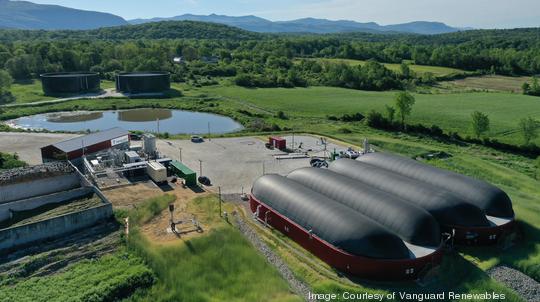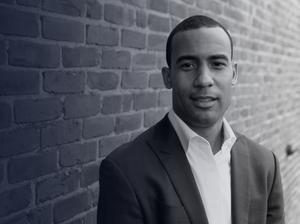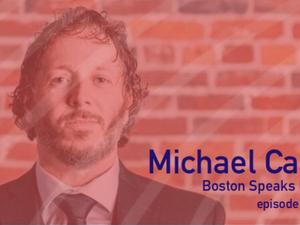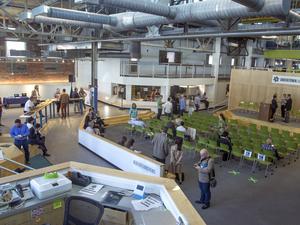
Neil Smith has built an energy startup before.
He joined Intergen in 1995 when it had 20 employees. He retired as CEO in 2016, leaving a global multibillion-dollar business with six power stations and hundreds of employees.
Now Smith is trying to build again, this time with Vanguard Renewables, a Wellesley company founded in 2014 that develops waste-to-energy projects.
The company is still at a relatively early stage, operating six anaerobic digesters in New England, five in Massachusetts and one near Middlebury College in Vermont. But its new CEO has a vision for rapid growth with plans to build out 100 more sites in the next 3 to 4 years.
“There are a lot of parallels that I see between where Vanguard is today in terms of its growth trajectory, where that industry’s headed. There’s a lot of my prior experience that I can bring to bear here,” Smith said in an interview. “Fundamentally, Vanguard’s in an interesting space that can make a difference in the world, and it’s a movie that I’ve seen before and been through before.”
Anaerobic digestion is a conversion technology that takes food or dairy waste and breaks it down using bacteria. That produces biogas, which can then be converted into renewable natural gas. It’s not a new technology; there are thousands of digesters operating across Europe.
But experts say the U.S. is nearing an inflection point where the demand for renewable natural gas, which is three to four time more expensive than conventional gas, is enough to make it worth it to produce.
That’s largely because of new corporate attitudes towards sustainability, Smith said.
"You need someone who values the environmental attributes of the renewable natural gas to fundamentally make it work," he said. "The growth of the renewable natural gas market has not been driven on the back of government mandates and subsidies. It’s being driven by thoughtful corporates leading the charge and saying ‘we’re going to be net neutral or carbon zero’ by pick your date."
Government policies have helped the company’s early growth, though, too: it was able to succeed in New England because of laws mandating that organic waste food producers could no longer send their waste to landfills. Feed-in tariffs, designed to offer long-term contracts to renewable energy producers, also helped.
“Those two drivers together, that’s how we got off the ground,” Smith said.
He sees the company undergoing two phases of growth: First, he foresees Vanguard growing into a large development company with a construction arm, and then it would likely transition into a large operating company with a smaller development/construction arm
In the short-term, Vanguard is looking to grow its staff in every department, adding “purpose-driven” employees to its ranks, Smith said.
Last month, the company entered into an agreement with the pipeline company Enbridge to build eight waste-to-RNG sites across the country.
“I suspect you’ll see more announcements like that in the future as we sign up more customers and more sites,” Smith said.







